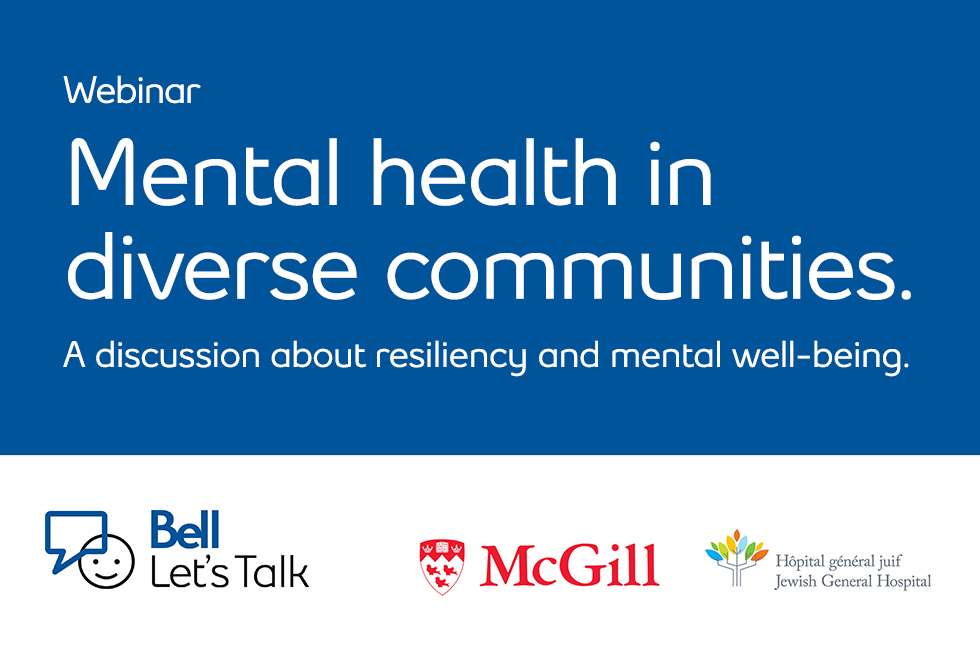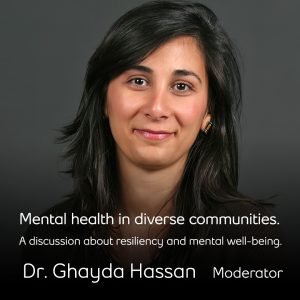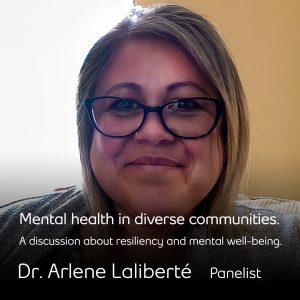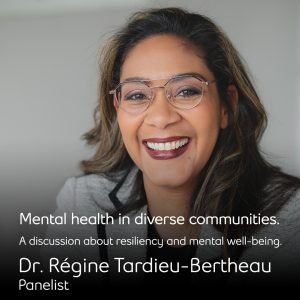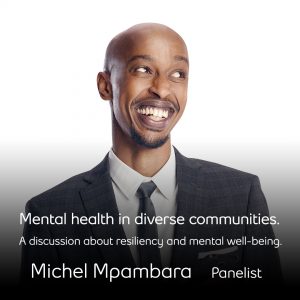Join us for insights into the state of mental health in diverse communities and participate in a discussion about resiliency and mental well-being. Register now for this free panel moderated by Dr. Ghayda Hassan, PhD, clinical psychologist, professor of clinical psychology at the Université du Québec à Montréal (UQAM), and researcher with the SHERPA-RAPS team at CIUSSS Centre-Ouest-de-l’île-de-Montréal.
Don’t miss this opportunity to:
- Learn how the challenges faced by ethnocultural communities impact their psychological well-being.
- Discover tips and best practices for taking care of your mental health.
- Submit questions or topics for discussion to a panel of people with real-world experience and experts in mental health research specializing in ethnocultural communities.
Thursday, January 21 at 12 p.m. (Eastern Time)
Registration
The event is held in French and will be recorded.
Here is our speaker line-up:
Dr. Ghayda Hassan, PhD, clinical psychologist and professor of clinical psychology at the Université du Québec à Montréal (UQAM). Researcher with the SHERPA-RAPS team at CIUSSS Centre-Ouest-de-l’île-de-Montréal. Founder and Director of the Canadian Practitioners Network for the Prevention of Violent Radicalization and Extremism (CPN-PREV). Co-holder of the UNESCO-PREV Chair.
Régine Tardieu-Bertheau, PhD, clinical psychologist, lecturer and clinical internship supervisor at the Université de Montréal. Author of educational psychology books for children. Founding member and President of the Collectif pour l’Approche Transculturelle (CAT).
Dr. Arlene Laliberté, PhD, clinical psychologist, consultant in community well-being with the consulting firm LaLouve.
Michel Mpambara, humorist, mental health speaker, actor and Bell Let’s Talk spokesperson.
To learn more about each speaker.

